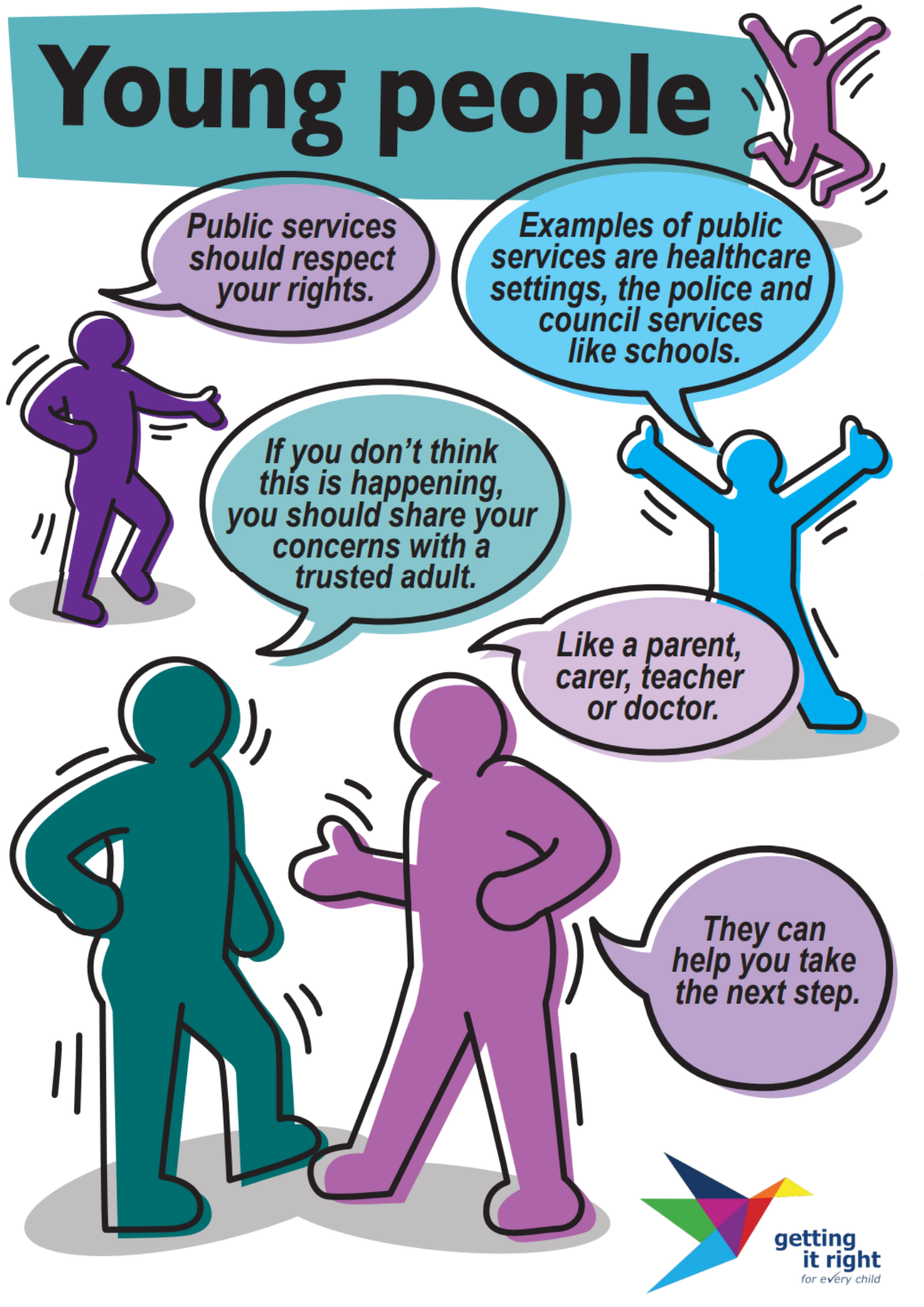You should always be treated fairly and listened to by public service organisations. Schools, hospitals, social work services and the police are some examples of these services that are provided by the government to make sure life runs smoothly and that people are cared for. These services should welcome feedback when it’s given to them respectfully, as this helps them improve for the future.

What Are My Rights?
Good question! You have a range of rights that should all be equally respected, protected and fulfilled. Take a quick look at this version of the United Nations Convention on the Rights of the Child that explains your rights in simple and easy-to-understand terms.
You can also watch this short animation that follows young people through the community as they interact with different public authorities and see how these authorities can respect your rights.
So how do you share your concerns and ensure you are heard?
Speak to an Adult You Trust
A good first step is to speak to an adult you trust. This could be a parent, carer, youth worker, teacher or social worker. They can help you understand your rights, support you in expressing your concerns and guide you towards the right help.
This might include speaking directly to the public service involved or helping you make a formal complaint. You don’t have to face it alone – there are people who can help you be heard and get the support you need.
Find an Advocate
Independent advocacy services are available to help you or a group of young people to share what you are concerned about or feel is not right.
An advocate’s role is to support you in having a strong voice, especially in situations where you might not feel confident. They can help you express your views, make sure your opinions are heard and ensure you have as much control as possible over decisions about your life.
Use the Find an Advocate tool on the Scottish Independent Advocacy Alliance website to see what is available in your local area.
Children and Young People’s Commissioner Scotland
The Children and Young People’s Commissioner Scotland plays an important role in protecting and promoting children’s rights, including investigating concerns and amplifying your voice.
You may wish to take a look at their contact details page to find out who is best to deal with your current issue.
Getting Legal Assistance
UNCRC says that a child should have a lawyer to empower them to stand up for their rights when legal decisions are being made about them.
Sometimes your situation might require legal advice. In these cases, it’s important to speak to a lawyer. There are specialist law centres in Scotland that focus on supporting young people.
Clan Childlaw has a free helpline that can help you understand your rights and find a lawyer. They also have lawyers who give young people free legal advice.
The Scottish Child Law Centre offers free, confidential advice on how the law affects the rights of young people. They also provide follow-up support to help you act on that advice, ensuring your rights are respected and taken seriously.
Making a Formal Complaint
Public services have tried to make it as easy as possible for you to make a formal complaint.
Before making a formal complaint, it’s worth checking if there are quicker ways to resolve the issue. This might include contacting someone you already know within the public service or visiting their website to find a customer feedback section where you can raise your concern. Taking these steps first can often lead to a faster and more straightforward solution. If that doesn’t work, then contact your local complaints team who will be able to help.
The Citizens’ Advice website has lots of helpful information on how to complain if you’re not happy with the way your local council has dealt with you or someone you know.
If you have a complaint about the National Health Service (NHS), the NHS must give you the contact details for Patient Advice and Support Service (PASS). The staff there are called mediators and they’re there to help you talk through any problems. They don’t take sides and just want to help you sort things out whenever they can.
Start the Conversation
It can be difficult to find the confidence to speak up, especially when it comes to taking that first step and starting the conversation. But it’s important to remember that you’re not alone. There are services and people ready to listen and support you!
If you feel your rights aren’t being respected, you can start the conversation using one of the ways above. Even simply saying, ‘I don’t think my rights are being respected,’ can help you get support.
It could make all the difference in the world!
For more information on your rights and how to ensure they are respected, head to our Activate Your Rights homepage.
